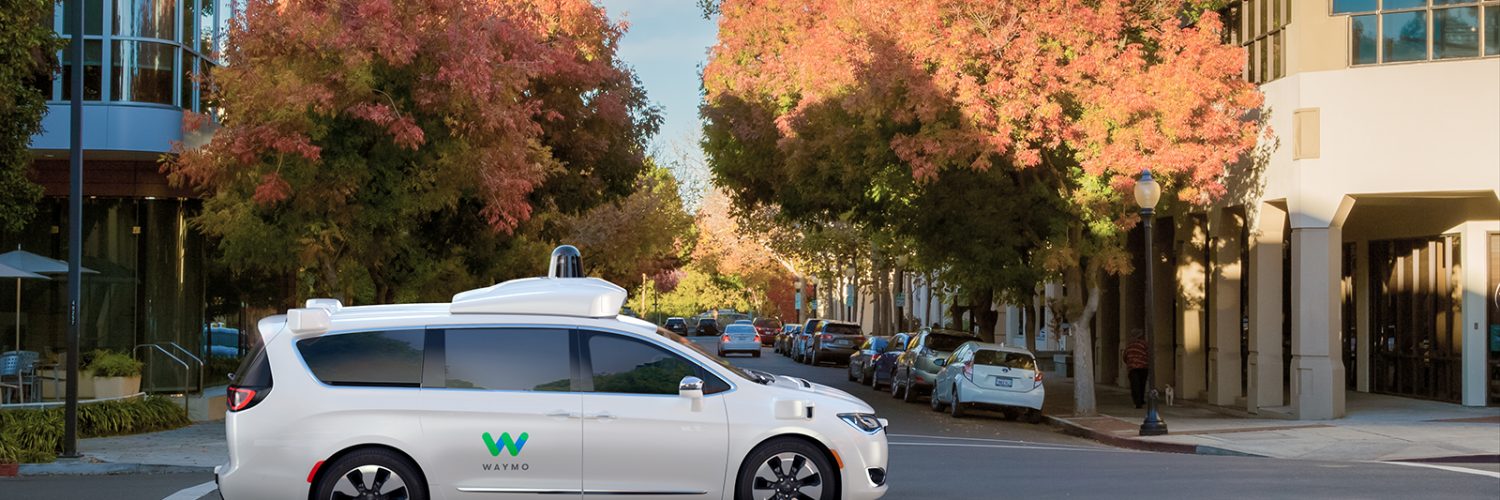Source: Waymo
Self-driving people mover Waymo has racked up more than 10 million miles on public roads since it began testing its software and sensors earlier this year. Now, the robo-taxi service will expand beyond the testing phase and will offer service to people needing a lift by the end of the year, including in Phoenix.
The company started offering test rides to a select number of people this past April. The limited early rider program allowed passengers to catch a ride in the white Waymo vans while an engineer and driver were present to monitor the way the vans drove during the testing. Since then, Waymo has quietly taken over the autonomous vehicle tech talk as rival Uber grounded its testing in major markets after a fatal pedestrian accident in Tempe this past March.
“The automated vehicles are rule-based. They’re learning, but still rule-based. It’ll be difficult to incorporate these vehicles in heavy traffic areas,” explains David King, Assistant Professor at Arizona State University’s School of Geographical Sciences & Urban Planning. “Waymo is moving ahead very conservatively. Anybody knowledgeable about Waymo knows their primary concern is safety. Waymo wants to be so safe that nobody questions if these are safe vehicles.”
This past spring, King and some of his colleagues at Arizona State University held a panel discussion about autonomous vehicles and their incorporation into society following the Uber-pedestrian fatality.
One big reason companies have been testing their self-driving cars on Phoenix-area roads is because of limited regulation. After the fatality this past March Arizona and Uber agreed to halt testing. Now, self-driving cars, including the robo-taxis Waymo will roll out in the next couple months, are taking a cautious approach. They still need to comply with an existing set of safety regulations under the Federal Motor Vehicle Safety Standards layout — a framework Waymo has already worked within with its compliant Chrysler Pacifica vans you’ve probably seen rolling around.
In the meantime, Congress is tossing around the idea of passing legislation that would make it much easier for companies to manufacture autonomous cars that aren’t fully compliant. In fact, this past January, GM announced that it was looking to develop and aggressively expand its steering wheel-free ride, the Cruise AV, then announced it was going to pump $100 million into manufacturing facilities for the new car. All in all, this combination has offered up the ability to get the car and others like it out on the road by end of next year.
“It would be really valuable for there to be some type of external check that could be done,” adds Clark Miller, a professor from ASU’s School for the Future of Innovation in Society who has been a passenger in the self-driving Waymo people movers that roll through his neighborhood regularly.
Like Prof. King above, Miller questions that long-term effects autonomous cars will have on city planning, infrastructure, and overall safety when it comes to rethinking the way we drive/ride on the road.
So, where do we go from here? The industry continues to reposition following several high profile setbacks in the individual vehicle market. That gave way for a shift to development of commercial vehicles, such as Tucson-based TuSimple. As companies like Waymo cautiously prepare for the next big roll out, Miller says this is the perfect time to take a breath and prep for what’s coming.
















Add comment